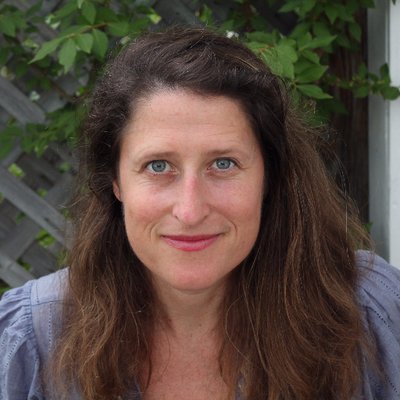 Students in the Master of Arts Program's Arts and Culture Concentration are experienced journalists who want to develop historical knowledge, contextual understanding and nimble thinking across a range of disciplines. Through reporting and writing assignments as well as extensive reading, case studies, visits to exhibits and performances, and collaborations with scholars and artists, students examine the emotional force of the arts as well as how they function in social and political contexts and as commodities in a global marketplace. With close editing from their professors, they work on prose matters like tone of voice, scene setting, argumentative development, rhythm and imagery. Working with core faculty members Alisa Solomon and David Hajdu, Arts and Culture Concentration students sharpen their abilities to write on the arts with authority, earned analysis, clarity, contextual perspective and grace.
Students in the Master of Arts Program's Arts and Culture Concentration are experienced journalists who want to develop historical knowledge, contextual understanding and nimble thinking across a range of disciplines. Through reporting and writing assignments as well as extensive reading, case studies, visits to exhibits and performances, and collaborations with scholars and artists, students examine the emotional force of the arts as well as how they function in social and political contexts and as commodities in a global marketplace. With close editing from their professors, they work on prose matters like tone of voice, scene setting, argumentative development, rhythm and imagery. Working with core faculty members Alisa Solomon and David Hajdu, Arts and Culture Concentration students sharpen their abilities to write on the arts with authority, earned analysis, clarity, contextual perspective and grace.
What is it like to be a member of the Arts and Culture Concentration seminar? We recently talked about the student experience with Julia Shipley, a 2020 graduate of the M.A. Arts and Culture Concentration who won Columbia's 2020 Best M.A. Thesis Award and the Nona Balakian Award. Her master's thesis was published by Rolling Stone and Grist and can be read HERE.
What was it like to study in the Arts and Culture Concentration core seminar?
It was a banquet: the reading, the discussions, and all the people that they brought into the classroom who were available to share their experience and who fielded questions from us. It was phenomenal. The seminar builds, so it becomes this sort of snowball of enrichment where the conversation becomes that more interesting because it has this and that behind it from what you discussed in the weeks prior.
One of the things that I love is how the readings that we’re doing are present-day journalism, so we’re having conversations about books that just came out, and we’re having conversations about articles from within the last three years. But then we’re also having real-life opportunities where, last fall, we reported about the Crossing the Line Festival and did reviews and stories for Hyperallergic. And later we were doing profiles about up-and-coming artists in the city. We were just really using New York as a part of our curriculum. I can’t unthink the changes in my brain that happened because of the coursework. I feel like I now know how to teach myself or report myself into whatever it is that I want to tackle.
What was it like to study with Professors Alisa Solomon and David Hajdu?
I’m sure all of the journalism faculty are like this, but I have to say that I think they’re two of the most dedicated professors that I’ve ever encountered. I mean they gave us everything: all of their energy, all of their care, and all of their attention. And I sometimes thought: how is this even possible? They’re one-thousand-percent present, always prepared, just consummate professionals. They brought everything. I can’t speak highly enough of the faculty.
Do you have advice for future M.A. Arts and Culture students?
It does go so fast, so keep yourself healthy, rested, and nourished so that you can have the best year of your life, in the intellectual sense. For someone who is just beginning the program, I think they're so lucky because it's the center of the journalism universe here, and they will have access to a wealth of opportunities.
As you consider the possibility of furthering your career as a journalist at Columbia, please explore our website to learn more about Columbia Journalism School's faculty members, course offerings, and career development services.
At Columbia, a top-tier journalism education can be within financial reach. Please visit our website to learn about our scholarship opportunities.
If you would like to make an appointment to speak with an admissions counselor, please email us at apply.journalism@columbia.edu.